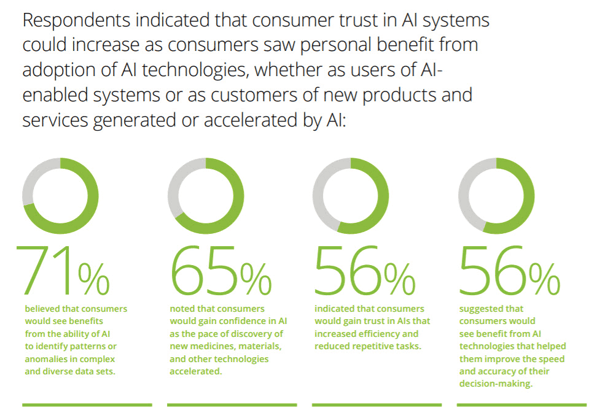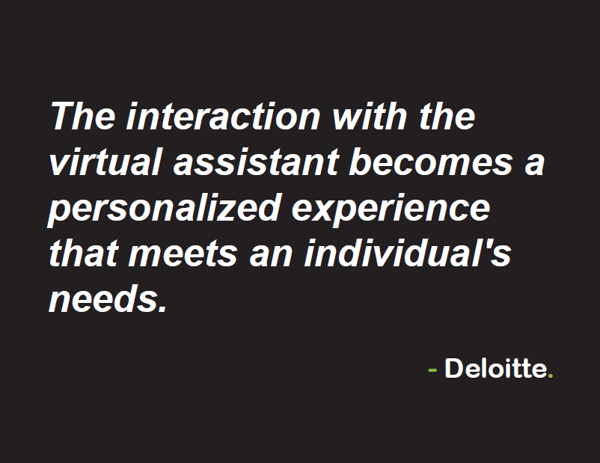Refill Reminders Automation to Improve Adherence and Outcomes
One missed dose may not look like much, but they add up to impact hundreds of thousands of patients' health and trickle downstream through the entire...

Smartphones and smart speakers give users nearly anything they want at the push of a button. AI virtual assistants like Siri, Google, and Alexa made these experiences easier and more personal. As consumers grew familiar with virtual assistants at home, businesses started to use AI virtual agents in customer service.
Despite the spread of virtual agent customer service, some industries still hesitate to adopt new technology. Some of these hesitations stem from misconceptions about virtual agent software. This includes concerns about AI virtual agents lacking empathy or accuracy, which creates fears of hurting the customer experience. This blog will dive into some of the most common misconceptions around AI virtual agents and why they are inaccurate.
Before we dive into the misconceptions around AI virtual agents, let's define the root term. An "AI virtual assistant" is a software solution powered by artificial intelligence that can understand spoken and written requests through natural language understanding or natural language processing (NLP). This means a user can say just about anything and the virtual assistant software will understand and return a natural-sounding response.
In customer service, virtual assistant software is often called an intelligent virtual agent (IVA). These agents help businesses engage with their customers by understanding and generating personalized responses to users.
What, then, are the misconceptions standing in the way of adoption? Let’s dive in.
One of the major drivers of AI virtual agent adoption is the desire to increase and improve customer service. COVID-19’s ongoing effects on digital transformation have driven the need for efficient and effective customer interactions. Both customer service and the overall customer experience must evolve in response to the growing expectations of individuals and businesses operating remotely.
Consumers know from experience that contacting support can be a tedious and frustrating task. Many customers prefer self-service for increased efficiency and ease of use. Adopting virtual agent customer service models meets these needs and delivers on-demand self-service opportunities. IVAs can make for easier navigation, quick and thorough answers, and perhaps most importantly, allow the caller better control to quickly and accurately find the information or service they need. Moreover, a study from Deloitte and the U.S. Chamber of Commerce’s Technology Engagement Center found that 56% of consumers value AI technologies that would improve the speed and accuracy of their decision-making.

All of these factors result in a better customer experience, leading to better customer retention and brand loyalty. The inverse is also true: failing to provide a significant experience can fuel disloyalty. By pushing routine interactions to virtual agent software, customers have a pleasant, consistent experience and accomplish their goals in a shorter amount of time.
AI virtual agents may seem like a big investment upfront, but the improvements to the customer experience and service pay for themselves. These solutions are also not as expensive as they may immediately seem at the outset. Many voice-enabled IVAs are paid per productive hour, so businesses using virtual agent software only pay for the hours when the technology is active.
Outsourcing services to an AI virtual agent does more than cut costs. Virtual agent software can make businesses more productive in other areas, such as staffing and customer relationship management. For instance, by delegating work to virtual agent customer service, companies can free up team members to work on other projects or customer requests that require a human touch. When you consider that voice-enabled IVAs can cut costs in some business areas and result in higher profitability in others, the initial investment is worth the jump.
An essential aspect of virtual agent customer service is that customers feel like they are interacting with a fellow human being when interacting with conversational AI. The technology has evolved so much in sophistication that voice-enabled applications accurately understand what a customer says, how it's said, and the context of the inquiry. How?
A virtual agent uses artificial intelligence technology like NLP and machine learning to understand the question and respond appropriately. Virtual agent software learns to pick up on situational contexts, like tone and inflection, and then modifies responses as needed. This allows them to handle a more complex range of questions and interactions, demonstrating a sense of empathy and personalization that customers crave.
Further, just like a living agent, organizations design virtual agent software with rules and guidelines to accurately meet customers' needs. Even if a business adopts an IVA with specific industry data, it will still need to orient the technology to run in alignment with the organization's particular needs and functions.
Contrary to popular myth, IVAs can be excellent in cultivating strong client relationships. One aspect of customer service that can break down relationships is long wait times.
Virtual agent customer service mitigates wait times and removes the annoyance of repeating questions to multiple representatives through skill-based routing or automatic call distribution systems. Using a web-based portal, a well-designed conversational AI can direct the customer to a robust knowledge base filled with answers pulled from a history of other individuals with the same issue. Customers appreciate the convenience that virtual agent software affords them, which translates to increased satisfaction and loyalty.
Enhanced personalization is another feature that makes AI virtual agents a valuable customer service tool to maintain client relationships. According to Deloitte, "the interaction with the virtual assistant [or agent] becomes a personalized experience that meets an individual's needs.” Therefore, an IVA that a company integrates into its document management systems and appointment scheduling tools can execute tasks and provide a sense of personalization and "human touch." These tasks range from greeting a returning customer to offering available appointment times – all without missing a beat.

Lastly, implementing virtual agent software maintains customer relationships by freeing human agents to play a more meaningful role in the customer journey. With these strategies in place, the human agent is there when the customer needs them and out of their way when they don't.
Virtual agents are programmed to be team players. For example, they are great at handling low-level inquiries and directing higher-level questions to a human agent. They can also disseminate information pushed to them by human agents, or secure additional details from a caller so the human agent has more context when they pick up calls.
Virtual agent software also requires human expertise and training. For example, a virtual agent has the experience, skills, and competence to get your business moving on the right track; but like all first-time personnel, they have to deal with a learning curve. The learning curve is steepest at the start and slopes downward as you gain more experience and confidence. Human agents play a vital role in training and programming virtual agent software to perform its intended job function.
Virtual agents will not replace human agents. Rather, they will supplement your team and take your business communications to the next level.
Within a company, some individuals are higher performers based on their skills and past experiences. The same is true for IVAs. Some virtual agent software is more sophisticated through the integration of machine learning and NLP, like we touched on above.
Therefore, contact centers need to be strategic with the virtual agent tools they select and take a similar approach to evaluating human staffing. For example, before hiring a new employee, teams should have a clear understanding of the skill level and capabilities that they need to help the business thrive. Before selecting which AI virtual agent to deploy, companies should identify the communication needs at hand. Is the contact center struggling to keep up with call volume? Are customers requesting more self-service options? Are current employees fielding customer questions that are actually on the website's FAQ page? Answering these types of questions will provide a clearer direction on what capabilities you need your IVA to be able to deliver.
Lastly, when vetting quality options, it's wise to examine customer testimonials, review the available integrations, assess the solution’s ability to read human nuances, and request to test the solution in a sandbox environment.
Mosaicx transforms customer experiences by helping customers deploy and optimize virtual agent customer service. We deliver contextualized and personalized interactions at scale, making it easy for customers to find information and engage with brands. Additionally, Mosaicx enhances agent decision support with next-best-action suggestions, reduces wait times, and resolves customer inquiries on the first contact with a representative, referred to as first-touch resolution.
Despite the misconceptions about AI virtual agents, the technology offers the best of both worlds in meeting both company and end-customer needs. Virtual agent software has improved in sophistication and is now a truly effective customer service tool.
As consumer demand changes, businesses must change with it. Though change may be intimidating, AI virtual agents like Mosaicx help businesses make sure those changes create positive experiences for both businesses and their end users.

One missed dose may not look like much, but they add up to impact hundreds of thousands of patients' health and trickle downstream through the entire...

Every day in a pharmacy comes down to balance. Your team juggles accuracy and efficiency, compliance and safety, paperwork and patient care, all at...
.png)
When customers call, they want to be heard now, not wait. However, if there's no visibility into what's happening across queues, agents, and...